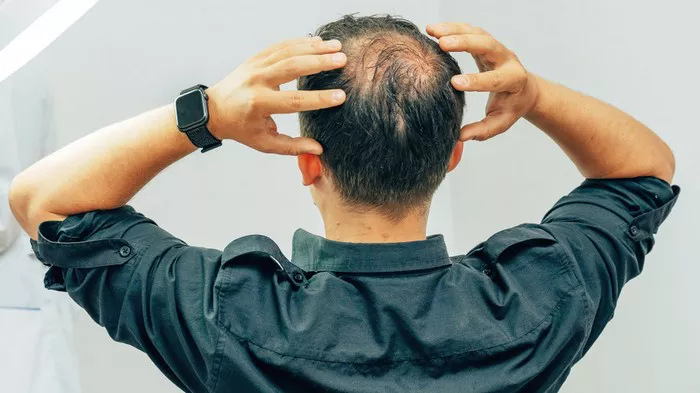Male hair loss is a common and natural part of aging for many men, but it can still be a challenging experience emotionally. Whether you’re just starting to notice thinning hair or you’ve already lost a significant amount, dealing with the emotional impact of male hair loss is essential for maintaining a positive self-image and mental well-being. Here are some strategies to help you navigate the emotional aspects of hair loss.
I. Acceptance is the First Step
The initial reaction to hair loss can often be denial or shock. It’s crucial to acknowledge and accept the reality of the situation. Understand that hair loss is a natural and common occurrence for many men, and it doesn’t define your worth or attractiveness. Embracing the changes and accepting them as a part of the aging process can be a powerful first step in dealing with the emotional aspects of hair loss.
II. Open Communication with Loved Ones
Talking about your feelings with friends, family, or a professional can be incredibly beneficial. Share your concerns and insecurities with those you trust, as they can offer support and understanding. Often, discussing your emotions can provide a sense of relief and help you gain perspective on the situation. If you find it challenging to open up, consider seeking the guidance of a therapist who specializes in issues related to body image and self-esteem.
III. Explore Hair Loss Solutions
Taking proactive steps to address hair loss can empower you and positively impact your emotional well-being. Consult with a healthcare professional or a dermatologist to explore potential solutions, such as medications, topical treatments, or hair restoration procedures. Knowing that you are actively working towards addressing the issue can boost your confidence and alleviate some of the emotional stress associated with hair loss.
IV. Embrace a New Look
Consider experimenting with different hairstyles or embracing a new, shorter haircut that complements your current hair situation. Sometimes, a change in style can make a significant difference in how you perceive yourself and how others see you. Consult with a hairstylist who can provide guidance on styles that suit your facial features and enhance your overall appearance.
V. Focus on Overall Health and Well-being
Maintaining good physical health can positively impact your emotional state. Adopt a healthy lifestyle by incorporating regular exercise, a balanced diet, and sufficient sleep into your routine. These habits not only contribute to overall well-being but can also boost your self-esteem and resilience in the face of challenges like hair loss.
VI. FAQs on Male Hair Loss and Emotional Well-being
Q: Is male hair loss preventable?
A: While some hair loss is genetic and inevitable, adopting a healthy lifestyle, managing stress, and seeking professional advice can help slow down the process in some cases.
Q: How do I talk to my partner about my feelings regarding hair loss?
A: Honesty is key. Choose a calm and private setting, express your feelings, and emphasize that their support is crucial. Share your journey and involve them in your decision-making process regarding potential treatments.
Q: Are there support groups for men experiencing hair loss?
A: Yes, there are various online and in-person support groups where men share their experiences, coping mechanisms, and advice. Connecting with others who are going through similar challenges can provide valuable emotional support.
Q: Can emotional stress contribute to hair loss?
A: Yes, chronic stress is linked to hair loss. Practicing stress-management techniques such as meditation, yoga, or therapy can be beneficial for both your emotional well-being and the health of your hair.
Q: What are some natural ways to promote hair health?
A: Maintaining a balanced diet rich in vitamins and minerals, staying hydrated, and using mild hair care products can contribute to overall hair health. However, it’s essential to consult with a healthcare professional for personalized advice based on your specific situation.
Dealing with male hair loss emotionally requires a combination of self-acceptance, open communication, and proactive steps to address the issue. By embracing the changes, seeking support, and focusing on overall well-being, you can navigate this aspect of aging with resilience and confidence.

